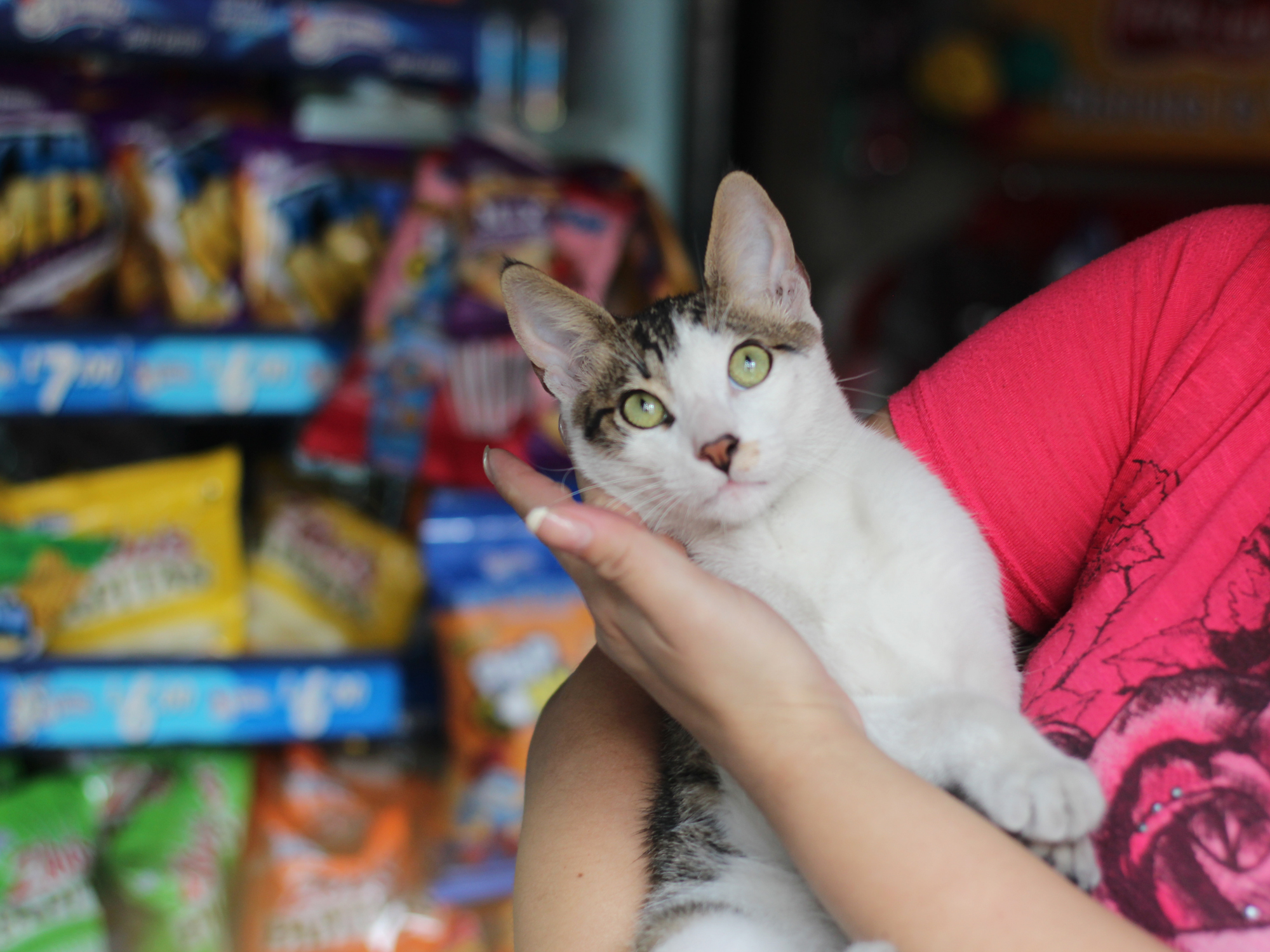Muñeco looked up at Ruth Aguilar with piercing yellow-green eyes. The 3-month-old pulpería cat was behaving unusually shy, but Aguilar insisted he’s very jugueton — playful.
Standing inside Orgullo de Barrio (Neighborhood’s Pride), a store located in a hilly road of Barrio Morazan, she pointed to a faded poster taped over the business’ short, iron gate. There was a hole in the poster.
“When children come, they poke their fingers through there and they’ve made this hole bigger,” Aguilar said. “Whenever they come, he plays.”
She laughed because moments ago Muñeco had poked his paws out through the hole at someone who approached the pulpería.
Aguilar described Muñeco as cariñoso — affectionate. He follows her everywhere, she said.
Though she’s grown very fond of him, Aguilar admitted that she didn’t seek Muñeco out.
“Someone gave him to my daughter,” she said, looking over at the cat once again. “And I accepted him.”
Aguilar later scooped up Muñeco in her arms and held him to her chest. She pet his soft fur. No longer shy, Muñeco didn’t try to scramble out of her grasp and instead squinted his eyes with contentment.
The International Women’s Media Foundation supported Amaris Castillo’s reporting from Honduras as part of the Adelante Latin America Reporting Initiative.
